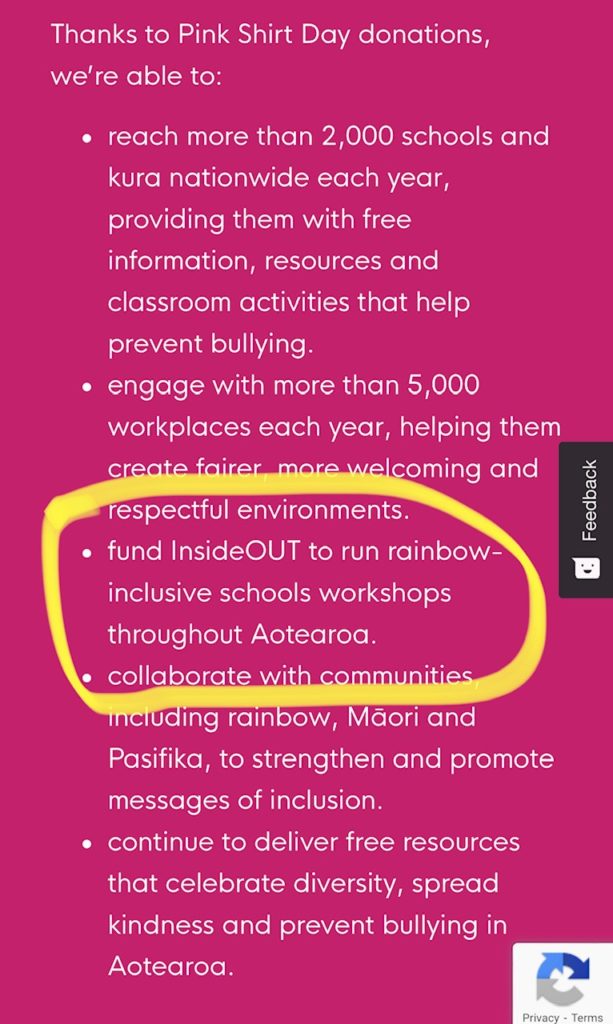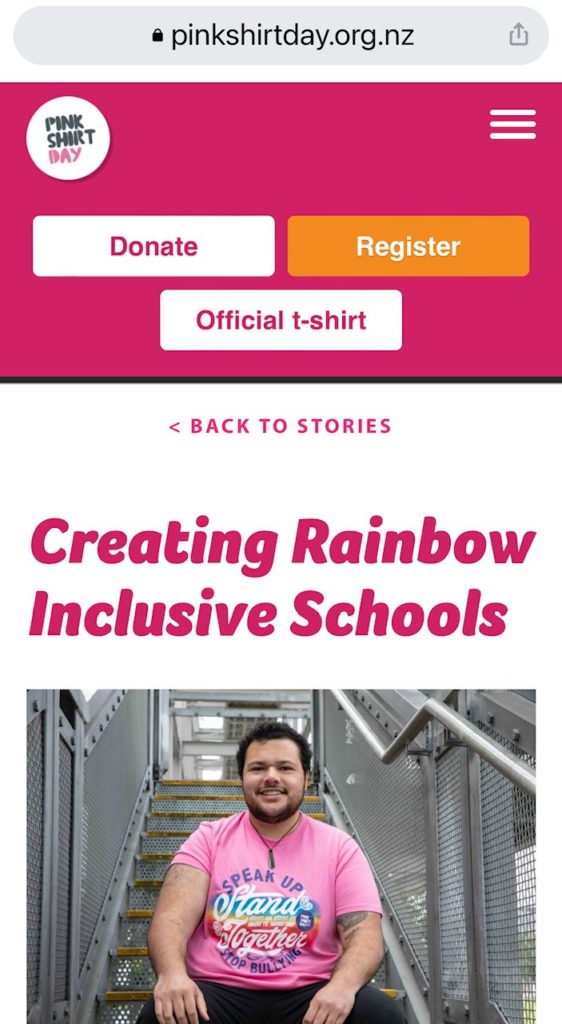Last year, we were alerted to the fact that Pink Shirt Day (which uses an anti-bullying message as a massive cover-up for a pro-LGBT narrative) has quietly dropped its reference to being anti-bullying if you’re being bullied because of religion.
So if you’re a student getting bullied because you’re Muslim, Christian, Jewish, or Hindi – it seems not to matter to the Pink Shirt Day people.
It hasn’t always been this way. In 2019, they were sympathetic to the fact that people (and especially Muslims) should not be bullied by reason of their faith.

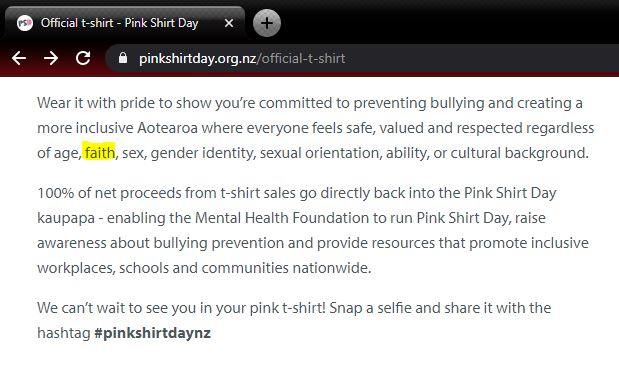
And especially after the Mosque attacks in Christchurch
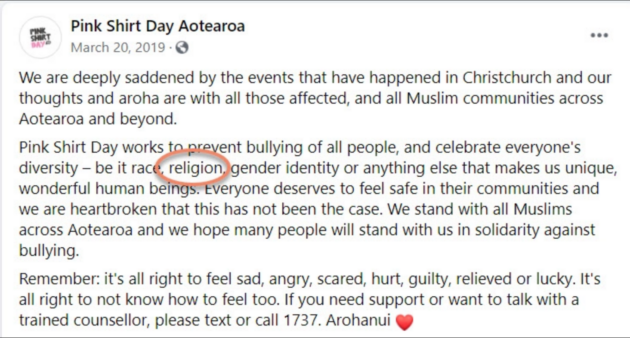
But all that changed in 2021…
Being bullied for your faith or “religion” was gone! Very quietly….

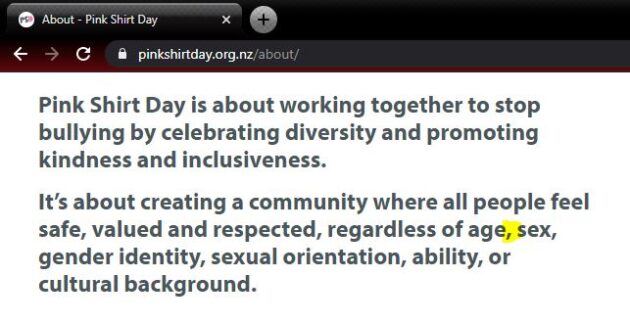
However, it appears to be included again this year. Perhaps they read our post.
Let’s understand this for what it is.
These types of programmes are wanting to politicise the sexualisation of school children under the guise of bullying programmes rather than deal with the school bullying issue as it should be dealt with. They are predominantly about promoting an LGBT narrative.
You just have to read the Kaiako/Teacher Toolkit to see that.
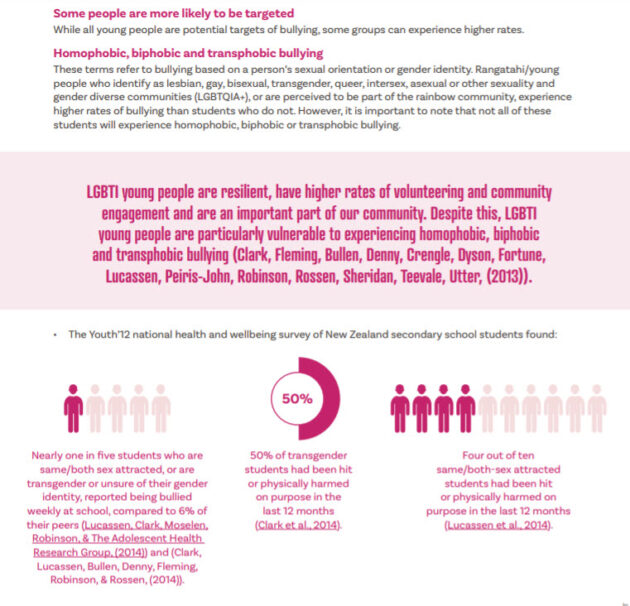
The policy is not inclusive, it is exclusive.
It primarily focuses on a very small group of students.(Religion is mentioned – once!)
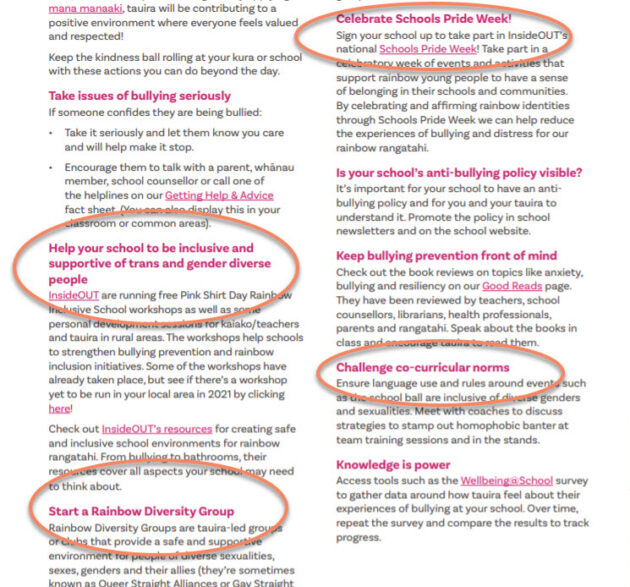
This is not the best way to deal with bullying and mental health issues experienced by school students.

The far greater proportion of students are bullied for the more common reasons of body image, racial background, disabilities, and academic success or failure, and of course the major prevalence of cyber-bullying.
Canadian research shows that bullying on the grounds of same-sex attraction, intersex or gender identity is not one of the most common reasons for bullying.
REASONS FOR BEING BULLIED, GRADE 7-8 [GRADE 9-12]
Body image 38% [27%],
Grades or marks 17% [12%] ,
Cultural or racial background 11% [14%] ,
Language 7% [7%] ,
Gender 6% [4%] ,
Religion 5% [5%] ,
Income 5% [5%]).
Unfortunately, overweight students, religious kids, students with acne or a speech impediment or a physical disability, or who are struggling academically, or students from a different culture don’t have a ‘lobby group’ or ‘cross-party parliamentary network’.
Yet depression and suicide are also associated with these types of bullying.
While the predominant focus of anti-bullying days like Pink Shirt Day want to focus on so-called ‘homophobia’ and ‘transphobia’, schools and students and parents want the focus to be on all students who are bullied, for whatever reason, and who deserve support and protection.
That includes people who are bullied for their faith and religion.
Which begs the question – why has the Pink Shirt Day quietly dropped the faith-based aspect?
Anti-bullying programs that do work place the focus on zero tolerance for any reason, and target the bully.
TAKE ACTION:
Check what anti-bullying programmes are being run in your child’s school to ensure that
* all victims of bullying are being kept safe,
* all bullies are receiving the direction and support they need to stop bullying, and
* the ‘gender identity’ and sexual diversity agenda is not being disguised as an ‘anti-bullying’ programme
2022 Pink Shirt Day – Still unsure what the real agenda is?
